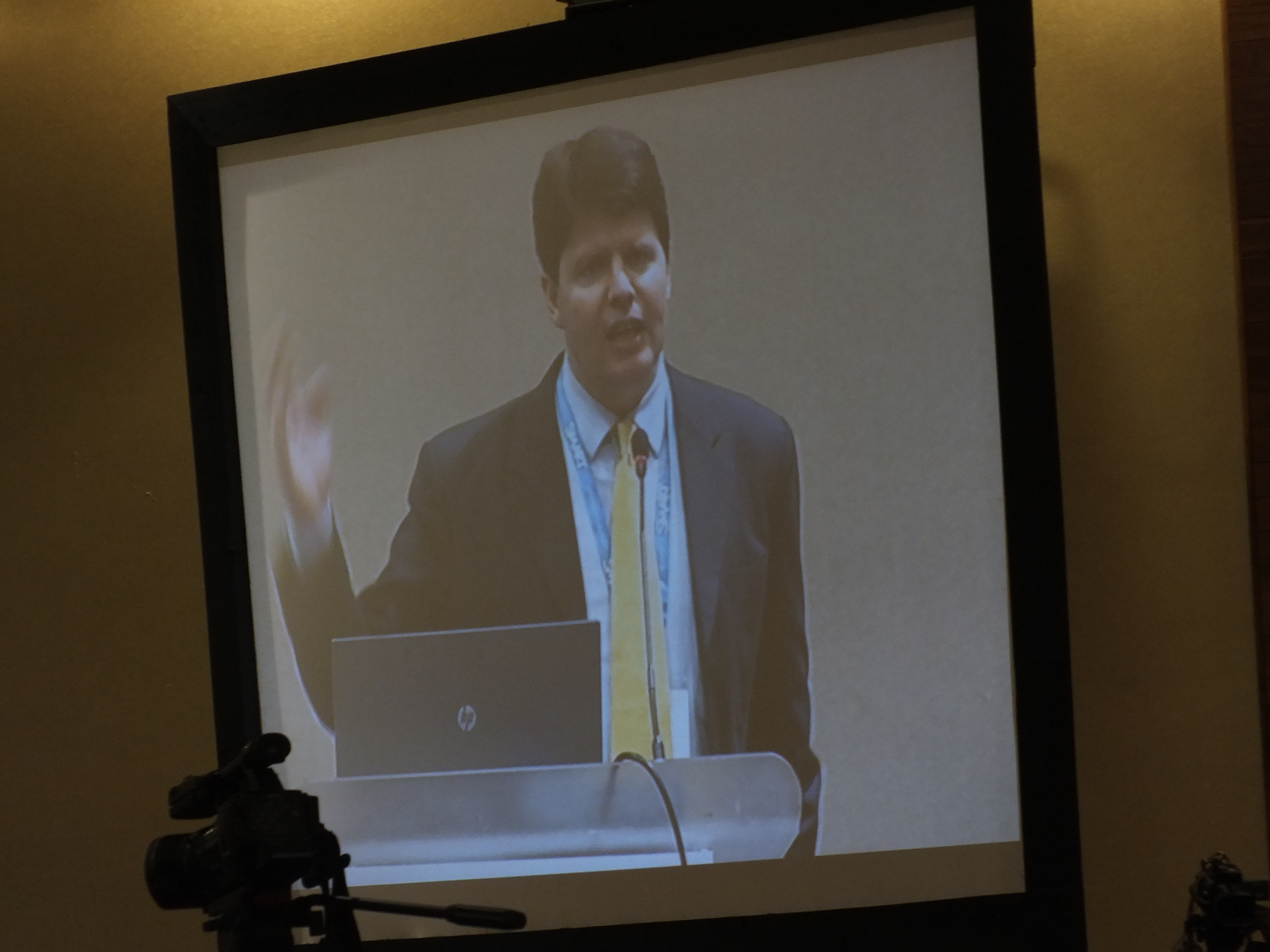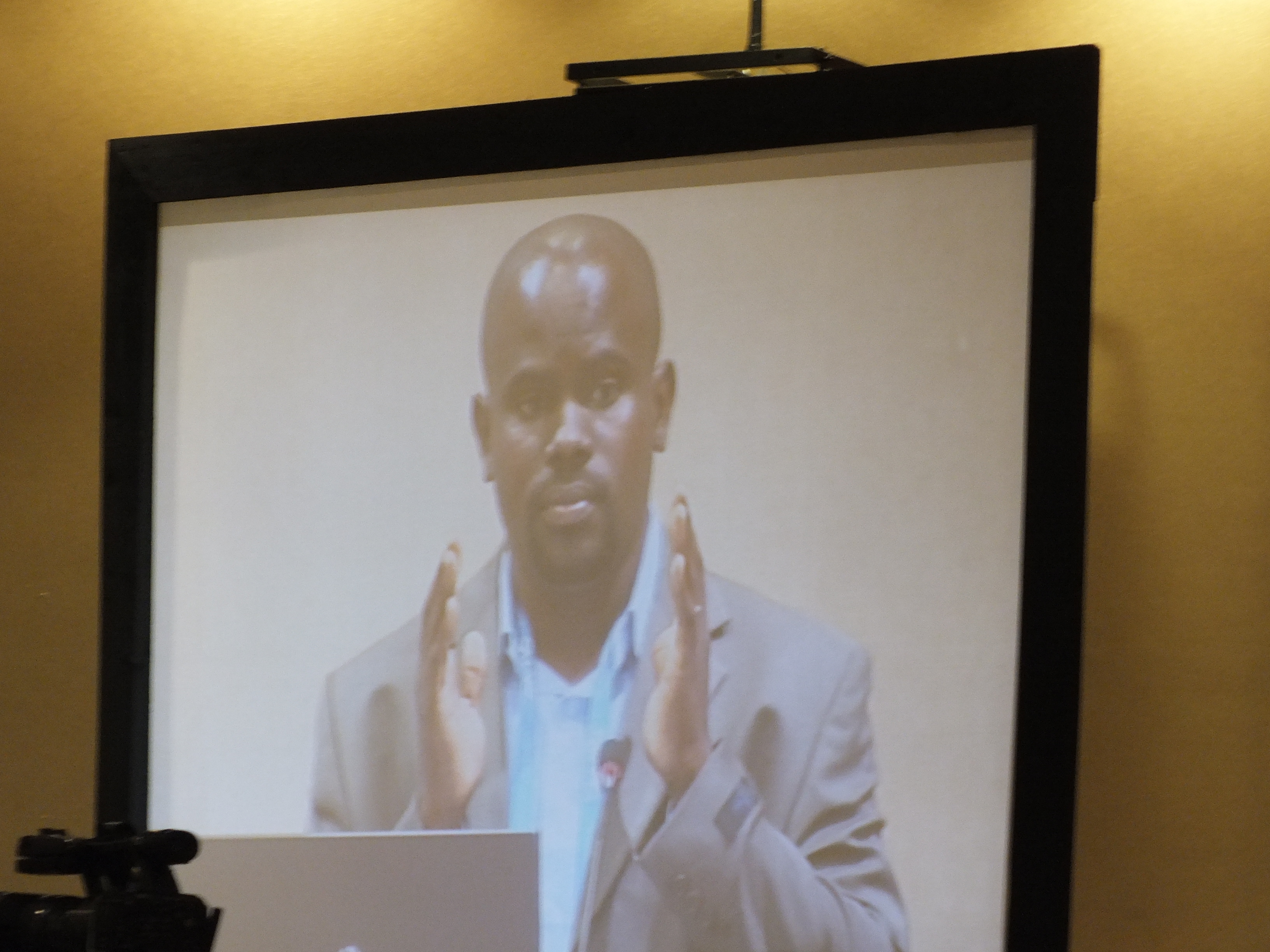I'm back from an invigorating three days at e-Learning Africa in Dar es Salaam. The theme of this year's event was ICT for Development, Education and Training. My first reaction on learning of the location of the conference centre was less than positive, as I imagined hours spent in thick traffic commuting from my hotel in the city centre to a venue on the outskirts of the CBD. However, the commute was worth the effort. Mlimani City Conference Centre is a modern complex. The conference centre is self-contained: no need to walk between buildings, confused by contradictory signage, to reach a carefully hidden workshop venue. On the contrary the stands flanked the conference rooms – both large and small - in a simple square building with four connecting corridors. While the air con was a little severe, the environment was perfectly fitting for a conference of this scale.
The opening plenary saw the usual procession of government and big private sector education and technology pundits. In addition, Mike Trucano stepped in to replace Jim Adams, Regional Vice President, East Asia and Pacific Region, of the World Bank. Trucano used his hallmark black-backed power point slides with powerful imagery and minimal text to illustrate his points. Trucano fixes the audiences’ attention on what he is saying – which he does simply, humbly and without histrionics.
He talked about innovative uses of ICT and was careful to differentiate between ‘prepackaged’ innovation ‘airdropped’ into Africa, and existing innovations that are perhaps often taken for granted, or just not noticed. How can we use the technology we have to be innovative?, he asks. A pertinent question for an African audience given the pervasiveness of the mobile phone (more abundant than toilets in Africa, according to Trucano), and the limited access to broadband and one-to-one computing resources. Trucano went on to talk about the transformative power of community, especially when it works in partnership with schools and even the private sector. Where technical support is expensive, some Latin American countries are using the community to help, with computer clubs providing maintenance support. Uruguay, Trucano informed us, is the first country to deploy one computer per student. Costly? Yes. But their rationale is simple. When every student has a computer, every household has a computer. When every household has a computer some degree of change is inevitable – social certainly, and hopefully economic in time. But his overriding message was a simple one: each problem, each challenge requires its own tailor-made solution. The ‘one size does not fit all’ aphorism is one that GESCI has been expounding upon for years. So why at these conferences are we still privy to the same cautionary comment? Because as Trucano puts it ‘ ICT is transforming learning everywhere but the classroom’ where pre-packaged solutions imported from outside of Africa often ignore the reality of financial resources and existing human resource capacity to utilize ICT effectively. Perhaps the most prophetic of Trucano’s observations concerned Sesame Street. The patriarch of childrens’ television recently stated that its future lies in the mobile phone – not TV.
So what are we to take from all of this? Be innovative with what we have. Use what is effective in our own environment. Be innovate in how we measure impact – know what we’re looking for, but be open to seeing all possibilities and change. And as for thinking outside the box? As someone once said to me in relation to modes of thinking about responses to any number of given global environmental crises -there is no longer a box! There is no longer the luxury of choosing how to think and what to see. ICT ‘s transformation of learning everywhere but the classroom has removed the box that our education systems have been snuggly residing in.
Other interesting plenary presenters included Emmanuel Feruzi M.D. of Tri Labs, a Tanzanian programing company. He gave a stirring account of his rise from very humble beginnings to owning his own very successful programing company. It was a welcome and honest reminder of the role of determination and passion in the quest for success – of any kind.
However, Feruzi had one other trump card in his pocket. He went to a school in Zambia that nurtured his innate talents. Some children, he astutely points out, are ‘not wired for classroom learning’. Some of his friends, who were abysmal primary and/or secondary school students, still went on to become very successful professionals, becuase somewhere along the way be it in university or the workplace, their talents were recognised and nurtured. Feruzi, asks Africans to take advantage of disadvantage. But is he just an extraordinary person blessed with enough talent and determination to meet the educational, social and economic challenges that many cannot overcome? Perhaps, but one inescapable fact that Feruzi laid bare is Africa’s aversion in his words to risk taking. Feruzi is not just a product of passion and intelligence. He is someone who at every opportunity took risks and invested in people. He went out on his own when many people told him not to. And when he was rewarded for his efforts, he did and still is, to use a weary but none the less worthy motto, ‘giving back’. Feruzi, takes the labeled ‘disadvantaged’ and trains them to be programers. He asks us to unlearn what we have learned, to start over and to share what we know with others. This is not just a good advice for Africans, it’s good advice for everyone. Feruzi is the embodiment of the highly skilled, innovative, passionate, commercial and social entrepreneur. Africa needs 1000,000 Feruzis. But Feruzi, didn’t do it entirely without the education system. A self-learner yes, but he did have a good beginning as he freely admits. He learned what he was good at partly because his schooling encouraged him to. Feruzi, like Trucano, is teaching us to decide for ourselves what innovations we want, to take advantage of what's available, to decide what solutions solve our problems, and to leave the rest behind.
By Niamh Brannigan
Read Feruzi’s blog here
blog.trilabs.co.tz
ELA Part 2 Round Up tomorrow
Niamh Brannigan
GESCI
Subscribe Now
Receive regular updates and early alerts on new programme launches.


